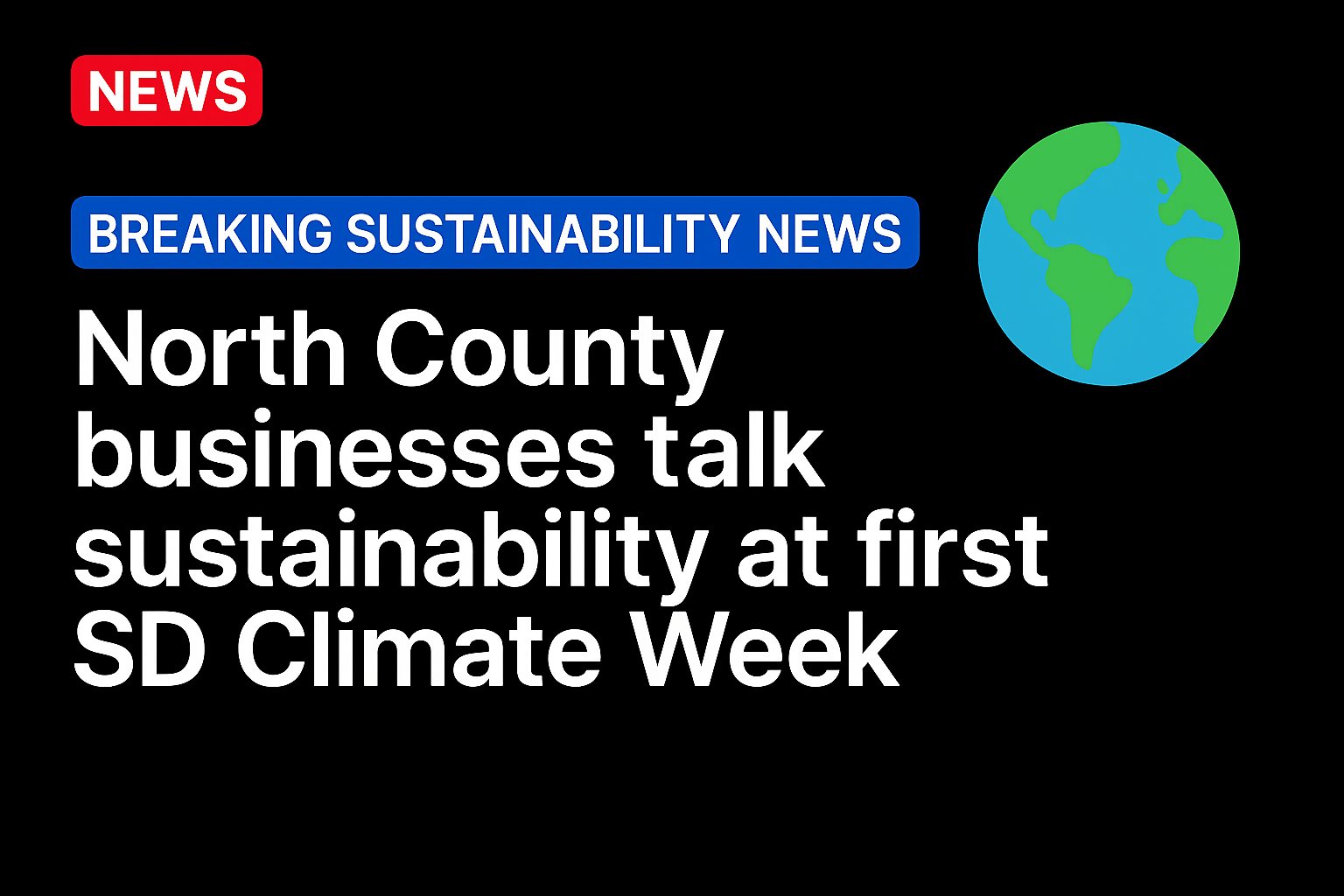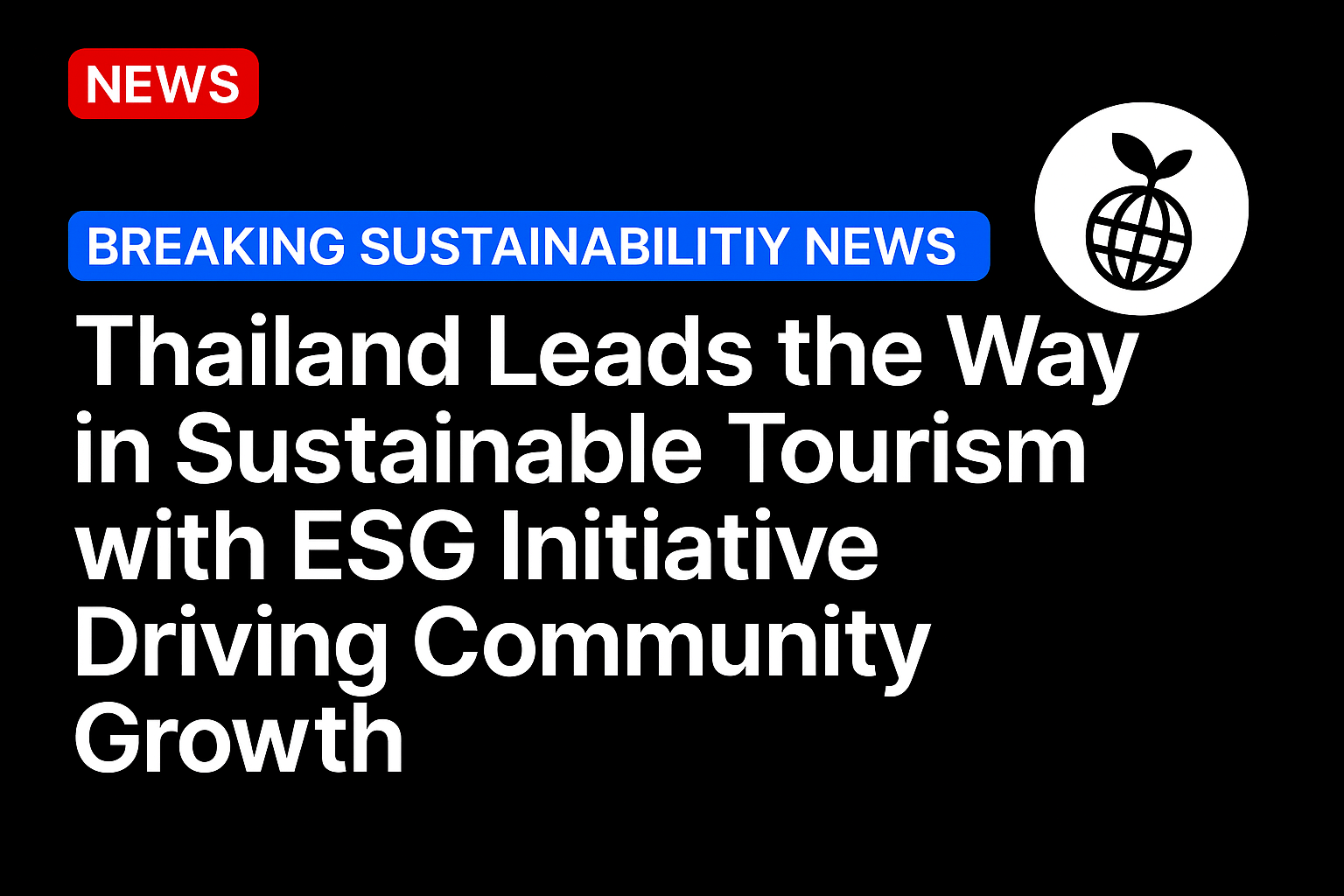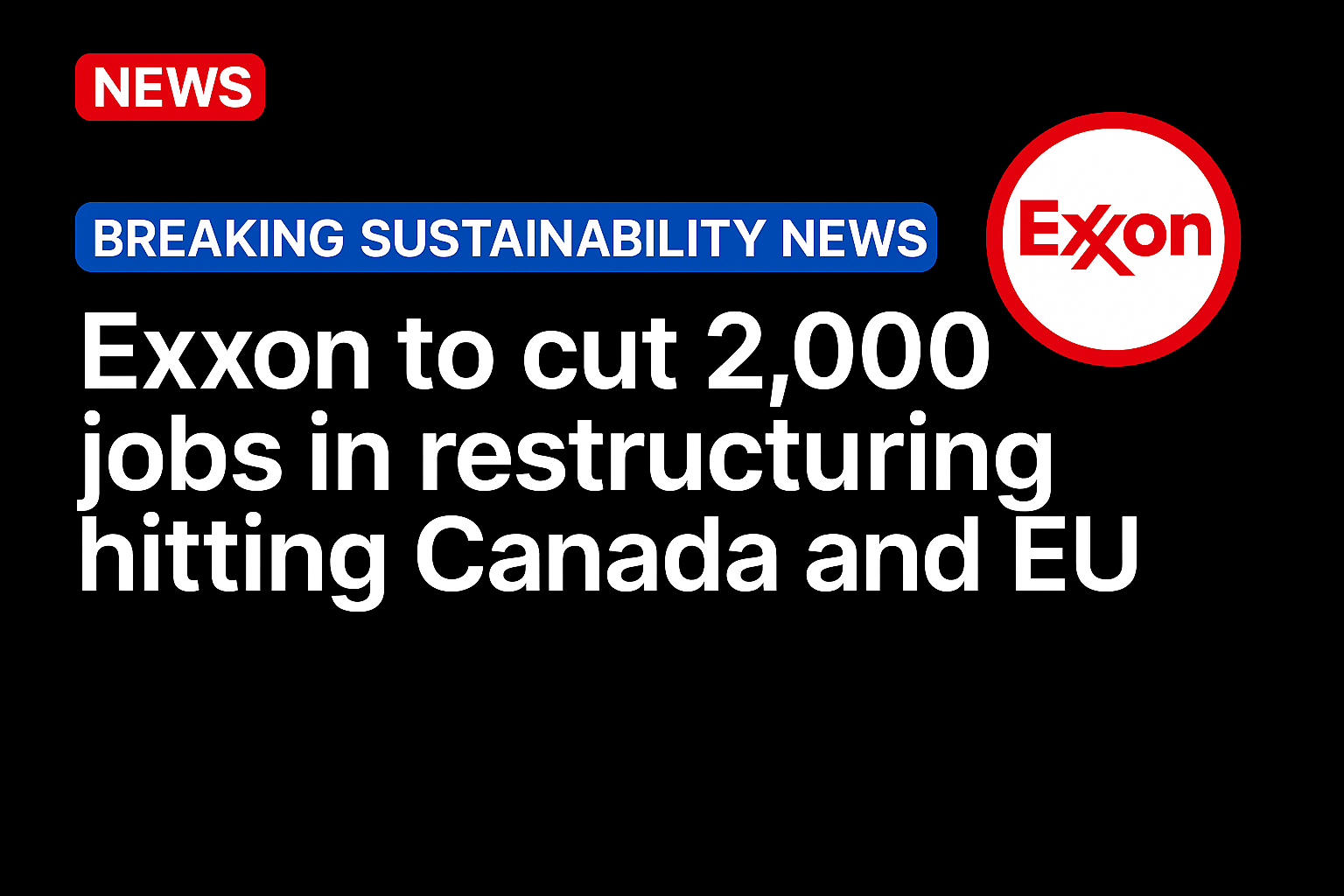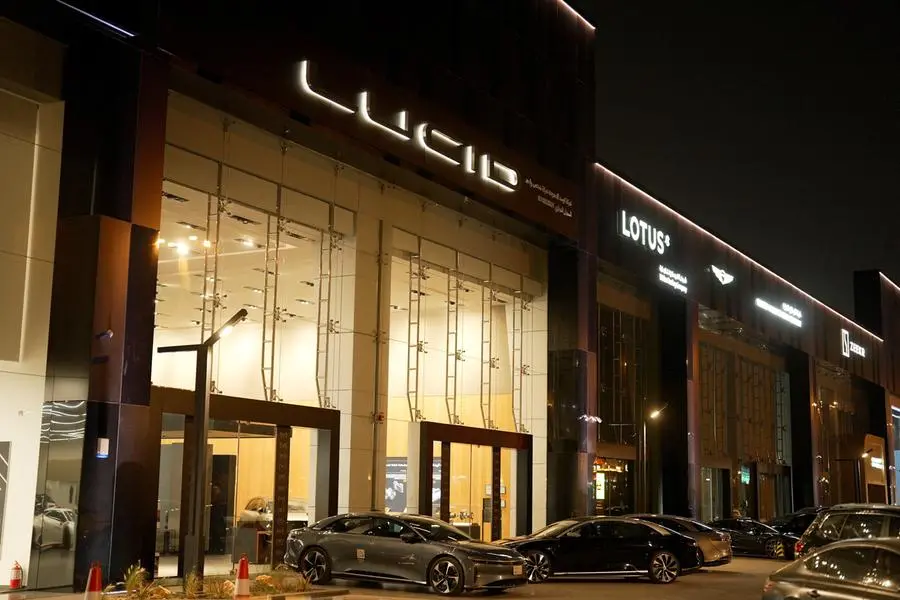VISTA — As the region celebrates its first annual San Diego Climate Week, North County businesses and city personnel gathered on Friday to discuss initiatives related to reducing waste and promoting resilience in the face of climate change.
The inaugural San Diego Climate Week featured over 100 events from Oct. 1-8, including panels, workshops, film screenings, and tours, led and organized by thousands of community members, scientists, business owners, and policymakers.
Each day’s schedule was packed with events exploring topics like clean energy, disaster relief, climate careers, sustainable business practices, food systems, Indigenous resilience, biodiversity, youth development, and more.

During the Resilience in Action event on Oct. 3, attendees heard from a panel of North County businesses about the initiatives they are undertaking to reduce their carbon footprint and eliminate waste wherever possible.
Panelists included leaders from Vista-based Solatube International (whose headquarters hosted the event), Dr. Bronner’s Magic Soaps, Pure Project brewery, and plastic wrap recycling nonprofit Plastic Beach.
Plastic Beach, based in Encinitas, collects and recycles soft plastics from supply chains that are typically sent to landfills, partnering with Trex to reuse the material for composite decking products.
Founder Matthew Clough said the nonprofit is one of a kind, gathering the plastic film wrapped around the thousands of parts and products in the supply chain process. Since its founding in 2019, the nonprofit has diverted over 60 tons of soft plastics from landfills.
“Plastic Beach is providing downstream for material they’re desperately trying to get rid of,” Clough said. “Most of us are not aware that, as a community, there are no groups that will gather that material.”
Plastic Beach has partnered with several entities to divert their soft plastic waste, including Hansen Surfboards, Jimbo’s Market, Seaside Market in Cardiff, Pizza Port Brewing Company, and Cal State San Marcos, as well as fellow event panelists Solatube International and Pure Project.
Individual residents can also pay a monthly fee for Plastic Beach to collect and recycle soft plastics, including stretch film, plastic food storage bags, grocery bags, trash bags, bubble wrap, and plastic shipping bags from Amazon.
Solatube International also shared information about its sustainable practices in the development of tubular daylighting systems, which provide natural sunlight to buildings by ducting daylight into interior spaces.
In addition to the environmental benefits of Solatube’s products — reducing the need for electricity, lighting, and air conditioning to mitigate heat — the company itself also incorporates a climate-conscious ethos into its operations, said Neall Digert, Vice President of Solatube.
Solatube utilizes tubular skylights to illuminate its office and factory spaces, uses renewable energy to produce its products, and reuses any scrap material left over during manufacturing.
“We aim to have no scrap material come out of the manufacturing process,” Diegart said. ”Sometimes we will end up with scrap trimmings that become fully reground into new alloys … we can fully upcycle or recycle all materials.”
Attendees were also able to tour the Solatube factory to see some of these steps in action.
Another panelist was Kylie Volk, events supervisor at Pure Project, which operates breweries and taprooms in Vista, Carlsbad, and has three locations in San Diego, including North Park, Miramar, and near Balboa Park.
Volk said the brewing company has dramatically reduced its need for bagged grain by installing a grain silo at its brewery headquarters in Vista, saving around 11,000 bags per year.
The brewing company is also gradually developing a carbon capture program, which captures, stores, and reuses the carbon dioxide naturally produced as a byproduct of fermentation.
While these initiatives are pricey, Volk said they are essential to the company, which is trying to find ways to do its part.
“Beer is on the low priority sometimes when it comes to policies and how sustainable initiatives can be practiced … We’re trying to stand out in our industry of beer,” said Volk. “As much as we don’t want to believe it, there are establishments out there that don’t care at all.”
Kevin Lee, Environmental Impact and Compliance Specialist at Dr. Bronner’s Magic Soaps, discussed how the soap company’s values of respecting the planet have informed its business practices.
On the manufacturing side, Lee said Dr. Bronner’s has pivoted in recent years to using 100% post-consumer recycled plastic for its bottles and has moved away from using “virgin” plastic. The company has also started using paper cartons, which utilize considerably less plastic, for some of its liquid soaps.
Outside of the production floor, Dr. Bronner’s is known for being an avid vocal and financial supporter of various environmental, human rights and drug policy causes. Putting their money where their mouth is, Lee noted, is as important as the practical changes along the supply chain.
“It’s important to support projects supporting the climate, even if they’re not connected to Dr Bronner’s,” Lee said. “I’d like to see more of an adoption of the human element as well. Our most marginalized folks in society are the most impacted by the climate emergency right now. I’d like to see more businesses show up.”
The Resilience in Action event also featured a panel in the afternoon, hosted by the individuals who are leading local sustainability efforts for the cities of Carlsbad, Vista, Oceanside, and Solana Beach, to discuss ongoing climate initiatives in their cities.
Several cities, including Solana Beach, have focused on converting their city vehicles to electric power. Additionally, they have emphasized the importance of solar power, with the Vista Civic Center installing a solar project that covers around half of the complex’s energy needs.
Others, such as the city of Carlsbad, have established a Green Business Network to recognize local enterprises that implement environmentally friendly practices.
City sustainability leaders encouraged residents to share their input about sustainability efforts with the city, especially with elected leaders at the City Council.
“A lot of what I do is powered by the city council. Sustainability is a non-partisan issue; it’s truly our world,” said City of Vista Sustainability Programs Manager Cassidy McCarthy.
Sometimes, cities find that sustainability work is best tackled as a group. Panelists noted that joining the Clean Energy Alliance with other North County cities was a crucial step toward achieving sustainability goals in their Climate Action Plans.
The cities of Oceanside, Solana Beach, and Carlsbad, among others, are also seeking a joint contract for a greenhouse gas emission inventory.
To conclude the event, local artists participated in a reception to showcase their art pieces focused on climate issues.
Source: https://thecoastnews.com/




